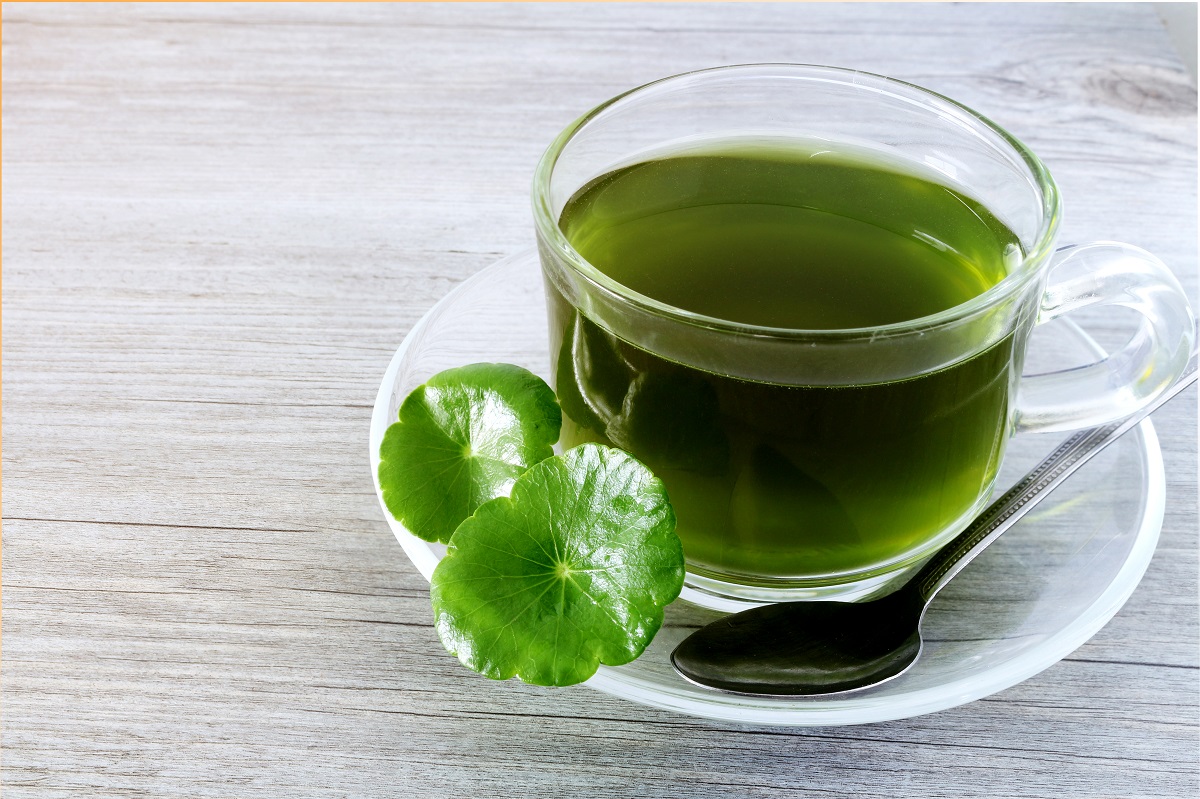Gotu kola is often mentioned as an herb for longevity, or the “fountain of life,” because legend says that ancient, learned people in India and China consumed it to live more than a hundred years.
Gotu kola (Centella asiatica) or Indian pennywort or jalbrahmi, is also known as mandukaparni in Sanskrit, which translates as ‘frog-leaved’, referring to its leaf shape resembling the webbed-feet of a frog. The word ‘gotu kola’ itself comes from Sri Lanka, literally meaning ‘cone leaf’ in Sinhalese, presumably referring to its tendency to curl its leaves into a cone shape.
Gotu kola has been used in Asia for thousands of years, both as a medicine and as a leafy vegetable. It is first mentioned in the historic ‘Sushruta Samhita’, one of the earliest Ayurvedic medical texts compiled around 300 C.E.
Properties and Uses of Gotu Kola
Asiaticosides, specifically triterpenoid saponins, the primary constituents of Centella asiatica are manly believed to be responsible for its wide therapeutic actions.
It helps fight aging by strengthening collagen
Gotu kola is a stimulant to the circulation with a particular focus on healthy skin. It helps strengthen, protect as well as increase collagen production and synthesis which is why it is touted to help in anti- aging remedies.
It works as an anti- inflammatory agent
The asiaticosides improve capillary strength, wound-repair mechanisms and have an overall strengthening effect on connective and nervous tissues throughout the body. This makes it an excellent herb for healing inflammation of connective tissue associated with chronic skin conditions and musculoskeletal (bone, muscle, tendon ligament) damage.
It helps boost brain cells
Gotu kola improves circulation to the brain where it supports cognitive functioning such as memory and concentration whilst also protecting the brain tissue from oxidative damage. This has made gotu kola effective for conditions such as Alzheimers, stroke and degeneration influenced by ageing.
It is an adaptogen which helps reduce stress
Gotu kola also has a relaxing effect on the central nervous system through increasing gamma-Aminobutyric acid (GABA) which provides relief from hyper anxious states, lowering corticosterone levels.
Its very softening when used on the skin
Gotu kola is packed with saponins which act as cleansing and softening agents for the skin. Oligosaccharides act as moisturisers, and phytosterols are protective agents.
Did you know some interesting facts about Gotu Kola?
- Gota kola is a favourite to help improve mindfulness and is said to revitalise consciousness and maintain youthful wit.
- In India gotu kola is sometimes referred to as ‘tiger herb’ as wounded tigers roll themselves in gotu kola plants.
- Apparently, it is also eaten by elephants, which could explain their excellent memories.
- Gotu kola should not be confused with kola nut as it does not contain any caffeine and has not been shown to have stimulant properties.
So how do you get your dose of Gotu Kola?
Accordingly, to studies a typical daily dose of Gotu kola is 600 mg of dried leaves or infusion, single-dose capsules (300 mg to 680 mg, thrice daily), a 10-mg concentrated extract, also available in capsules.
Dried Gotu kola leaf can be consumed as a tea, by adding 1-2 teaspoons (5-10 g) to about 2/3 cup (150 ml) of boiling water and allowing it to steep for 10 to 15 min and three cups (750 ml) are usually suggested per day.
The fluid extract (1/2-1 teaspoon equivalent to 3-5 ml/day or a tincture (2-4 teaspoons equivalent to 10-20 ml per day) are sometimes recommended.
It is also advised to take the herb for 6 weeks and then take a break for two weeks before starting it again.
More clinical trials are required to crown Gotu Kola – The Fountain of Life
The therapeutic potential of this plant in terms of its efficacy and versatility is very promising.
However, despite large number of studies reported over the past decades on the evaluation of biologically active components the outcome is still unsatisfactory. Although there have been several claims regarding the excellent biological actions of this herb, more scientific data are needed to justify its ever-increasing use.
Always check with your doctor when you decide a herbal drink or supplement is good for you.
References:








